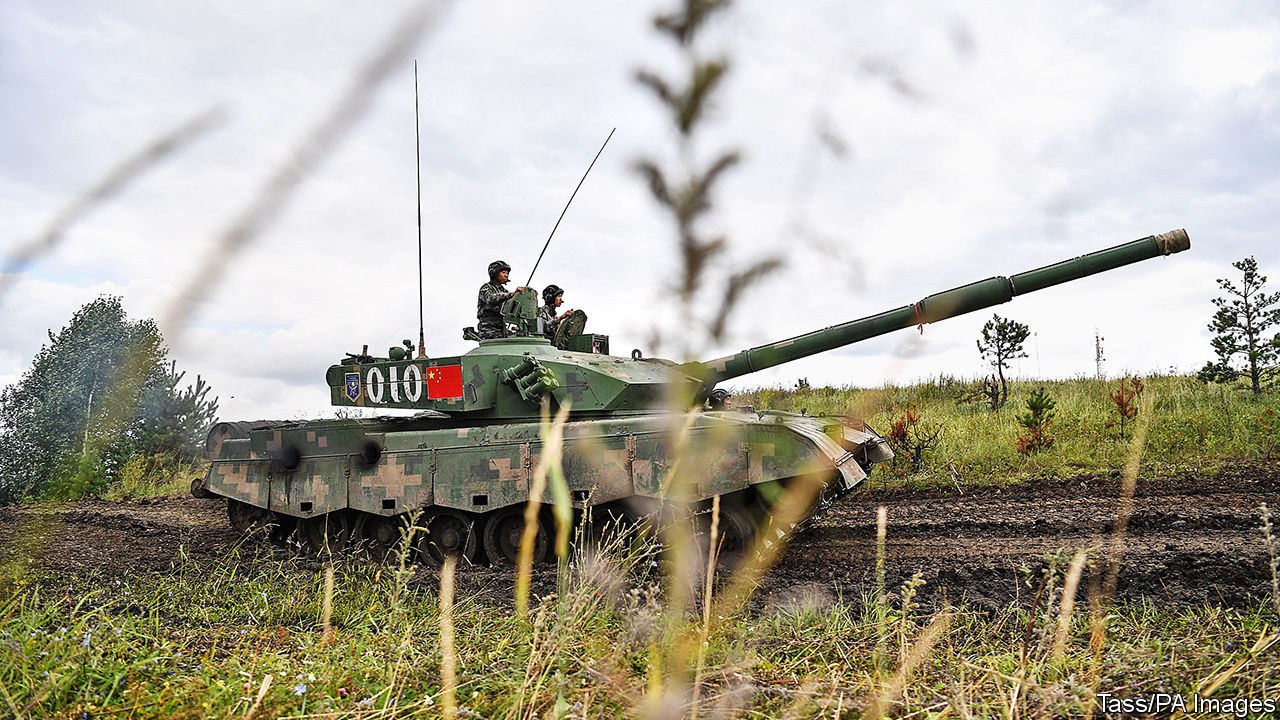
RUSSIA has long feared a Chinese invasion of its sprawling far east. Large Russian armies regularly drill in southern Siberia. This year the exercises are the largest since the cold war. But what is striking is not just the scale of “Vostok-2018” (see article), but the fact that thousands of Chinese soldiers will take part in them as honoured guests.
To some this looks like the reversal of Richard Nixon’s visit to China in 1972. Back then, America split the big communist powers. Now China and Russia are binding closer to challenge the American order. The parallel with the cold war is imperfect. But the West should worry nonetheless, not least because the exercises hold a mirror to America’s weakened alliances.
The art of war games
Exercises matter both militarily and politically. They help keep armed forces on their toes, and hone new weapons and tactics under realistic conditions. This is especially important for China. It is spending heavily on its armed forces, which have become more assertive, but is alone among the big powers in having had no combat experience in almost four decades. China’s forces have imported Russia’s most advanced missiles and aircraft. They can now absorb the battlefield lessons from Russia’s wars in Georgia, Ukraine and Syria.
Politically, there are limits to the rapprochement. China is the rising superpower; Russia is struggling to arrest its own decline. China’s vast infrastructure investments in Central Asia, part of the Belt and Road Initiative, are displacing Russia in its own backyard. Moreover, Russia’s brash flouting of international norms, including its annexation of Crimea and support for separatists in eastern Ukraine, sits uneasily with China. Russia has all but dropped any pretence of civility with America and Europe; China sticks to the notion of “win-win” relations. Russia arms the Taliban to frustrate America; China seeks to promote a peace deal in Afghanistan.
Nevertheless, Russia and China increasingly share a view of how the world ought to be reordered. They want to reassert the role of states over individuals and civil society, break American alliances and establish “harmonious” (ie, servile) arrangements with countries in their orbits. Both have blocked international action against genocidal and despotic regimes, such as those of Syria and Sudan.
Although Russia and China may never be firm allies, their partnership is bad news for liberal democracies everywhere. How to respond? The temptation is to try to play one off against the other. Chinese analysts, who love a conspiracy, devoured reports, later denied, that Henry Kissinger told President Donald Trump to use Russia to contain China. Others think partnership with China is more important. This is the wrong way to see the problem. America has many friends, mostly democracies, which can help it stand up to both Russia and China. Alas, Mr Trump is treating America’s friends badly.
Compare President Vladimir Putin’s deft military diplomacy in Vostok-2018 with Mr Trump’s capricious cancellation of joint exercises with South Korea—to the dismay of his generals. Japan frets that its military ties with America will become a bargaining chip in trade disputes (see article). And although Europeans are relieved that last summer’s NATO summit passed without a crisis, Mr Trump’s disparagement of allies, whether big countries like Germany or small ones like Montenegro, has frayed transatlantic bonds.
The world’s democracies, led by America, should be mounting a collective defence of liberal values. Instead Mr Trump is busy wrecking them. He should learn one lesson from Mr Putin: friends are an asset, not a burden.








